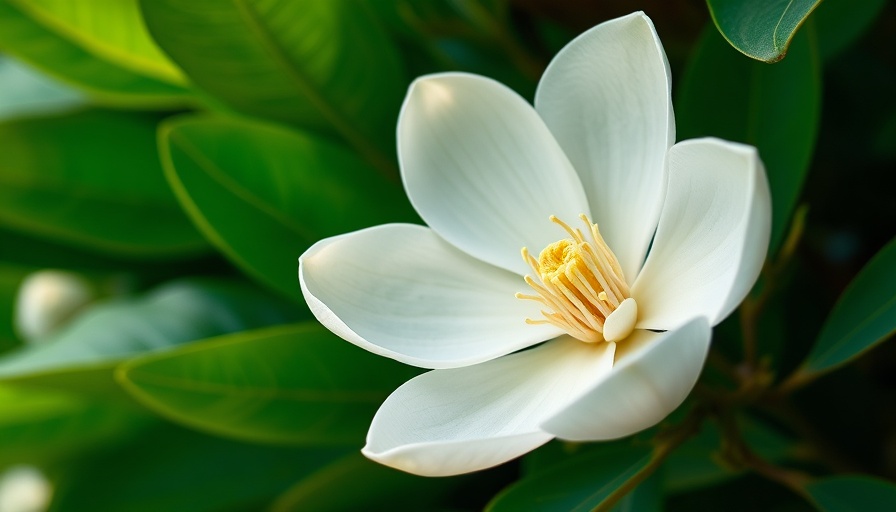
Discover the Timeless Allure of Magnolias
The magnolia tree, with its grand, fragrant blooms, is more than just a beautiful addition to any garden; it's a living testament to the Earth's botanical history. Found in various species across eastern North America, Central America, and Asia, these trees have existed for over 95 million years, making them some of the oldest flowering plants on the planet. Their stunning, large flowers not only captivate garden enthusiasts but also play a crucial role in their ecosystems, primarily attracting beetles for pollination.
Why Magnolias Matter to Gardeners
Magnolias are often hailed as 'living fossils.' Their relationship with beetles, which evolved even before the more complex pollinators, speaks volumes about their resilience and adaptability. Homeowners interested in plants should consider adding these unique trees to their gardens, not only for their aesthetic beauty but for their ecological significance. For instance, the native M. virginiana produces a lemony scent that draws in various pollinators, demonstrating the dual functionality of beauty and utility in gardening.
A Glimpse into Hortus Arboretum
At Hortus Arboretum and Botanical Gardens in Stone Ridge, New York, a dedicated team led by Allyson Levy and Scott Serrano has curated a stunning collection of magnolias that serve as both a homage to this ancient genus and a hub for community education. The botanical garden has a specific focus on rare and historically significant magnolias, aiming to heighten appreciation for these often-overlooked trees. With about 100 species and numerous hybrids, magnolias offer a substantial variation in blooms, from saucer-shaped flowers to stunning white and pink varieties. Such collections invite visitors to not only admire their beauty but understand their historical relevance.
Environmental Benefits of Cultivating Magnolias
By choosing magnolias for landscaping, homeowners have the opportunity to enhance local biodiversity. These trees provide habitat and food for birds and insects alike. For example, their seed cones, which develop after flowering, offer an eye-catching addition to gardens and serve as a food source for wildlife. Just as in nature, planting magnolias symbolizes our commitment to cultivating a sustainable ecosystem within our neighborhoods.
Why Magnolias Should Top Your Planting List
If you're looking to diversify your garden, magnolias should be among your top choices. Their adaptability and minimal maintenance needs make them ideal for any landscape. Their historical significance and aesthetic qualities enhance not only your garden but also contribute positively to the environment. As you consider new plants for your outdoor spaces, let magnolias inspire you not just with their beauty, but also with their rich history and vital role in nature.
 Add Row
Add Row  Add
Add 




 Add Row
Add Row  Add
Add 

Write A Comment